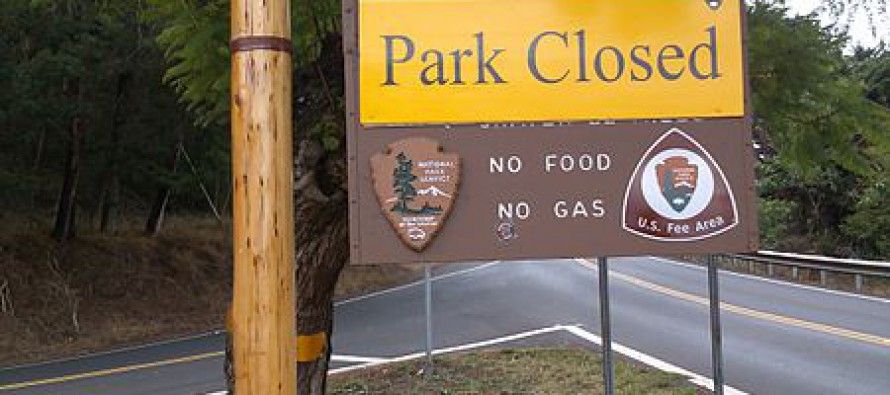Shutdown casts shadow over CA races for U.S. House

 The partial government shutdown is now in its second week. Throughout the duration of the shutdown, national and local media have released myriad stories about the pain that different government workers — and those who rely on government — are experiencing.
The partial government shutdown is now in its second week. Throughout the duration of the shutdown, national and local media have released myriad stories about the pain that different government workers — and those who rely on government — are experiencing.
Senate Democrats and President Obama have dug in: No negotiations until after a clean government funding bill and debt ceiling increase have been passed. Republicans, trying to ease the pain of a shutdown and win an uphill political battle, have tried passing piecemeal bills to fund popular or more critical parts of government, like cancer research and national parks. Democrats balked at most of the bills, though the Senate approved a bill to pay the troops, and President Obama signed it into law.
As the stalemate continues, political prognosticators have taken to analyzing which side is “winning” the shutdown. Republicans and Democrats are both spinning the issue as much as they can, trying to end the impasse, but still win the political battle without seeming overtly political. Making the impasse more complex, winning the political battle — without seeming overly political — is critical to ending the shutdown, since neither side has the impetus to fold unless they face significant electoral repercussions. It’s created a vicious cycle.
Heat
It’s possible that Republicans will take the heat for tying Obamacare reforms to funding the government, since the opposition party was typically blamed in past shutdowns. Others, like Sen. Rand Paul, R-Ky., think Democrats will look bad for refusing to negotiate.
Some have said that it brings both parties down, which is largely true. And many point out a fundamental truth in politics: Sometimes people just forget. The conventional wisdom, it seems, is that the current government will either stay in place after the 2014 election — with Democrats controlling the Senate and Republicans holding the House — or one of the chambers will turn on other events that occur closer to election day.
But a collection of polls released by Democratic-affiliated Public Policy Polling Sunday added a twist to the analysis: Democrats, according to the MoveOn.org funded polls, were in striking distance of taking back the House.
In order for Democrats to take back the house, they would need 17 GOP-held seats to flip Democratic. The PPP data was from surveys taken in 24 districts where Republican incumbents are considered vulnerable. In 17 of the 24, the Republican was losing to a “generic Democrat.”
California
So where does California come into all of this?
Three of those vulnerable congressional seats are in the Golden State. Reps. Jeff Denhan, Gary Miller and David Valadao are all at least somewhat exposed. The data even showed Miller losing to a generic Democrat and Valadao and Denham with less than desired numbers. And although the House has 435 seats, those three are among the most critical. How they perform, and how the national and state Republican parties help them, will be critical to maintaining the House.
Now, there are some flaws with the poll, which likely overstates the chances that Democrats have of actually winning back the House (though they very well may gain a few seats). Nate Cohn, of the liberal The New Republic magazine, offers a reality check for hopeful Democrats:
“Altogether, Democrats aren’t yet poised to mount serious challenges to a clear majority of the Republicans running on competitive turf, let alone actually win. So you should probably take this morning’s PPP poll with an additional grain of salt: it’s about how House Republicans would fare against a “generic” Democrat, not the mediocre one they’ll face in 2014. Perhaps the shutdown will trigger a wave of GOP retirements and Democratic recruits. But without both, Democrats will probably crest short of 218.”
Regardless, House watchers will likely keep a close eye on Miller, Denham and Valadao. Turns out, California elections might have national implications once again.
Related Articles
The Happiness Factor
With a headline like that, I bet you people can’t wait to read this one. But after reading this New
UC still funds pro-union think tank
AUGUST 16, 2010 By ANTHONY PIGNATARO Despite well-publicized tuition hikes and other various increases in student fees, the University of
Todd Spitzer on the Road to Damascus
April 14, 2012 By Steven Greenhut If a politician has based his career on advocating a set of policies, and


